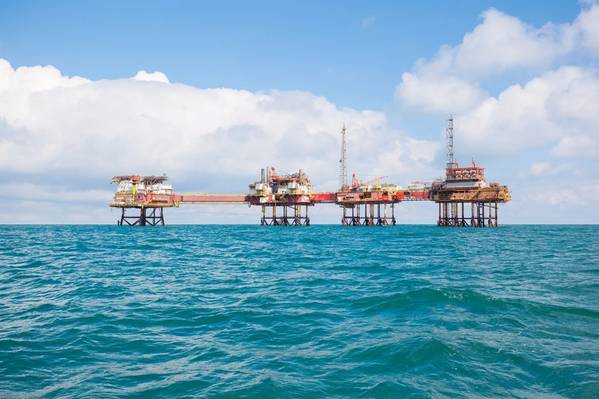Britain's decision to increase a windfall tax on oil and gas producers to help pay for its push to grow renewables will lead to a sharp drop in revenue and accelerate the ageing basin's decline, North Sea drillers said.
The new Labour government announced on Monday it will increase the Energy Profits Levy (EPL) by 3% to 38% starting Nov. 1, bringing the headline rate of tax on oil and gas activities to 78%, among the highest in the world.
It will also scrap the levy's 29% investment allowance, which allows companies to offset tax from capital that is re-invested. Its duration was also extended to March 2030.
The measures will "ensure oil and gas companies contribute more towards our clean energy transition," a Treasury spokesperson told Reuters. The government has set up a state-backed power company GB Energy to help to sharply grow its renewables capacity and decarbonise the power sector by 2030.
Francesco Mazzagatti, CEO of oil producer Viaro Energy, said that the new proposal are not conducive to the stated net-zero goals.
"Industry reports overwhelmingly prove that a reliance on oil and gas will be required in the decades to come, and the imports are significantly more emissions-intensive than the local supply," Mazzagatti said.
Consultancy Wood Mackenzie said the EPL could raise 1.2 billion pounds ($1.54 billion) per year, or 6 billion pounds over the next parliament, but warned it would also lead to a "premature slowdown of investments" in the sector.
Company executives said the measures will dry up investment in the basin.
"I hope the government do something sensible rather than cast a wrecking ball across the North Sea," David Latin, chairman of North Sea producer Serica Energy, told Reuters.
"The risk is that they will try to reduce capital allowance and that will mean we won't invest. As the basin stops investing, output starts declining much faster and revenue drops," Latin said.
The first 25% windfall tax was imposed in 2022 after a surge in energy prices that followed Russia's invasion of Ukraine. It was later raised to 35%.
The windfall levy wiped out most profit for producers last year. Producers, including Serica, Ithaca Energy and Harbour Energy, the basin's largest producer, are also seeking to shift operations overseas.
Britain's North Sea output stands at about 1.3 million barrels of oil equivalent per day (boed), according to the North Sea Transition Authority (NSTA) regulator. That is down from about 4.4 million boed - more than OPEC heavyweight Iraq - at the start of the millennium. Output is projected to decline to less than 200,000 boed by 2050, the NSTA says.
The new government measures will increase Britain's reliance on imports of oil and gas, Mazzagatti added.
"Sooner or later, the government will be forced to address the very serious concern for the energy security of the UK, as they do not appear to be factoring in the energy risks they are exposing the country to," Mazzagatti said in a statement to Reuters.
Viaro announced on Tuesday it would buy oilfields and assets in the southern North Sea from Shell and Exxon Mobil .
Shell CEO Wael Sawan said that fiscal stability was crucial for the government to meet its energy transition targets.
David Whitehouse, head of industry group Offshore Energies UK criticised the government for not consulting the sector prior to its announcement.
"This is not partnership working between government and industry. These announcements have been made without meaningful engagement with this sector," he said.
(Reuters - Reporting by Arunima Kumar in Bengaluru and Ron Bousson in London; editing by David Evans)






